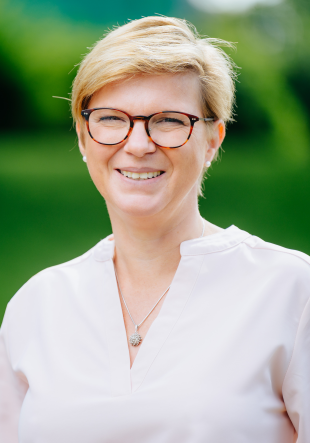The Childhood and Youth Research in Sports department is aiming to bridge the gap between science and practical application
According to experts, many children and young people do not take enough exercise. School and club sporting activities came to a complete standstill during the coronavirus lockdown. In order to use scientific findings to specifically combat the lack of exercise among children and young people that has been evident in recent years, last Friday Paderborn University’s new play and physical activity lab was inaugurated during a ceremony at the Benteler Arena. The aim of this institution, which is part of the Childhood and Youth Research in Sports department, is to tailor research findings to the requirements of the practical world and transfer them into exercise activities for children and young people. "Inactive lifestyles can result in serious health issues, motor deficits and psychosocial stress, even at a young age", explains Prof. Dr. Miriam Kehne, head of the Childhood and Youth Research in Sports department. Although measures and solid knowledge to promote active lifestyles are often based in science, long-term implementation in practice has nevertheless often proved very difficult or has ultimately failed. The play and physical activity lab will seek to bridge this gap between science and practical application. The new institution is headed up by Nicole Satzinger, a researcher in the Childhood and Youth Research in Sports department.
Transfer of knowledge to ensure an exercise-filled future
Researchers tackling the relationship between physical activity and holistic healthy development in children and young people are concerned about the persistent lack of exercise. "With the play and physical activity lab, the Childhood and Youth Research in Sports department at Paderborn University is setting a pioneering focus on promoting exercise among young people", Kehne explained at the opening ceremony. Working in close dialogue with the relevant stakeholders from practical and political worlds, the practical, application-oriented research work being undertaken at the besslab should enable solid knowledge to be transferred into the exercise activities of children and young people in a manner that meets the practical requirements. Prof. Dr. René Fahr, Vice-President for Technology Transfer at Paderborn University, is also excited about the creation of this new institution: "Networking and the transfer of ideas are becoming increasingly important. With the play and physical activity lab, the university is generating impetus for a key societal challenge and shaping interchange with the relevant stakeholders in exemplary fashion."
Numerous renowned guests attended the opening ceremony, including Dr. Gerwin Lutz Reinink of the State Chancellery for the state of NRW. Reinink praised the play and physical activity lab’s multifaceted approach: "Establishing a stronger link between science and practice in order to derive impetus for practical work from scientific discussion, and vice-versa to gain orientation for practice-oriented research from the current needs and requirements in the everyday lives of young people, is absolutely the right way to go." Diethelm Krause, Vice-President of the LSB NRW state sports association and President of the KSB Paderborn district sports federation, believes that club sport can significantly promote the development of children and young people: "Clubs offer diversity and inspire people to exercise. Close interlinking and mutual exchange between practice, politics and science is a prerequisite for ensuring that children and young people will take more exercise in future." Prof. Dr. Nils Neuber, spokesman for the NRW Childhood and Youth Sport research collaboration, is delighted that Paderborn is gaining "a new interface between science and practice": "This is an important signal from eastern Westphalia, and complements the excellent work being undertaken at Paderborn University within the Childhood and Youth Research in Sports department."


![[Translate to English:] [Translate to English:]](/fileadmin/_processed_/3/3/csm_besslab_logo-gruen_Ausbaustufe1b_RGB_300ppi_bd00d14deb.png)
![[Translate to English:] [Translate to English:]](/fileadmin/_processed_/d/9/csm_heiko_appelbaum_bessleb_da5e8d2937.jpg)
![[Translate to English:] [Translate to English:]](/fileadmin/_processed_/8/1/csm_heiko_appelbaum_besslab_2_aed25b409e.jpg)
![[Translate to English:] [Translate to English:]](/fileadmin/_processed_/5/csm_heiko_appelbaum_besslab_3_68ffaa5e3c.jpg)

